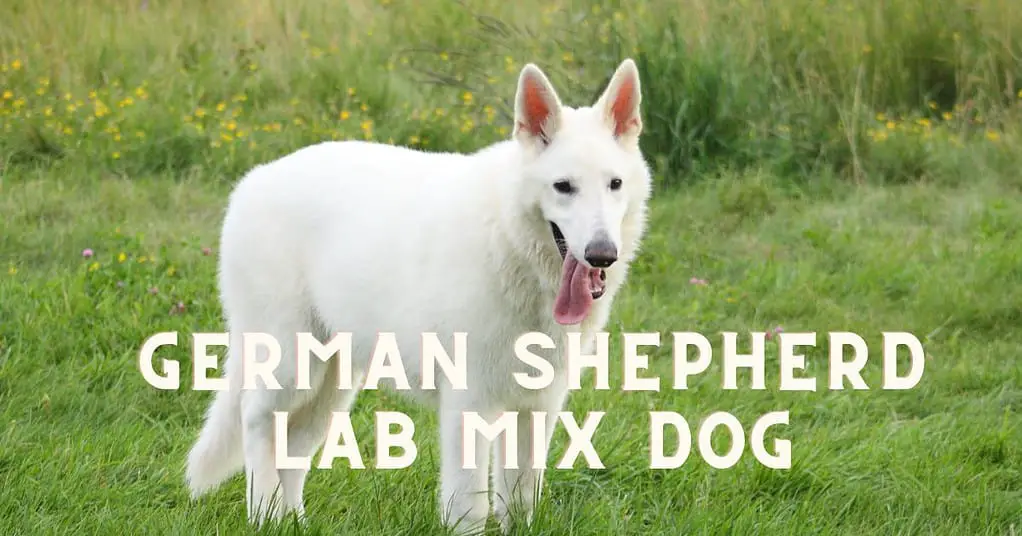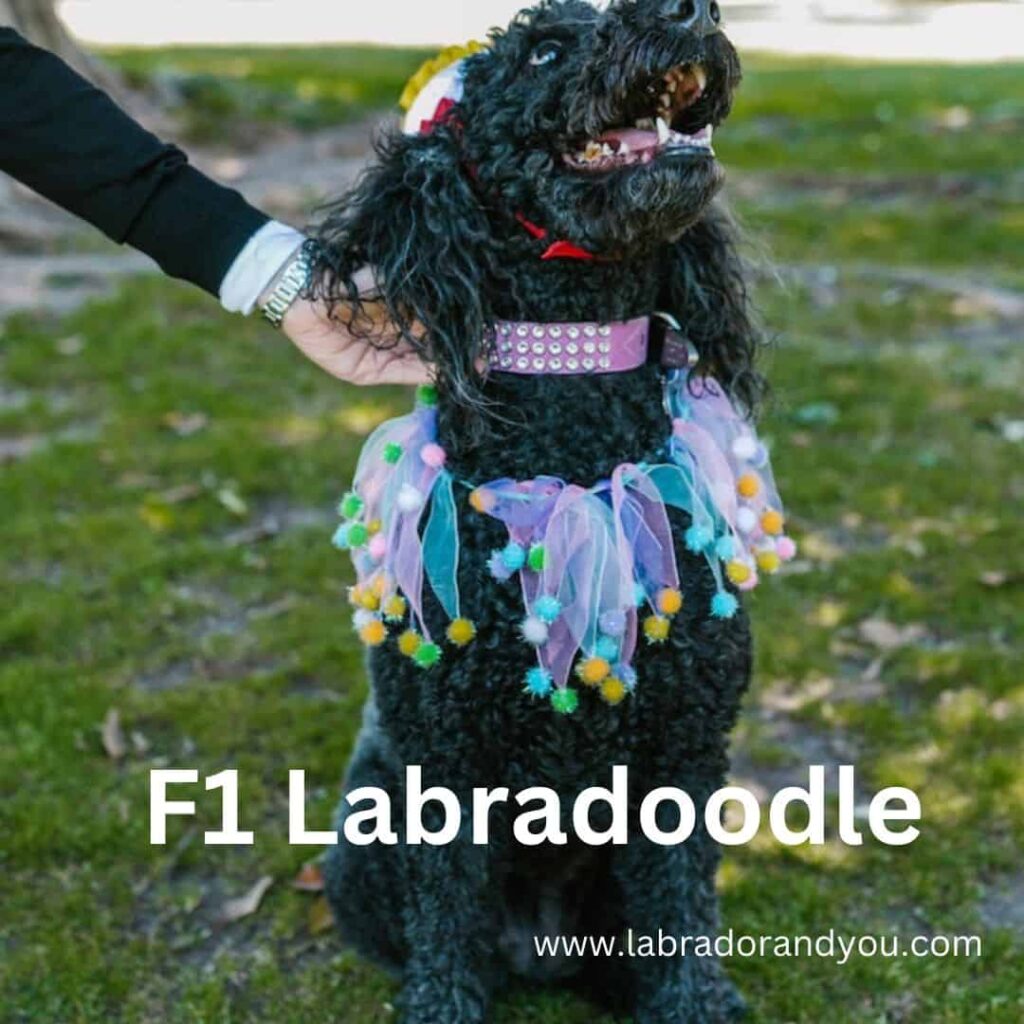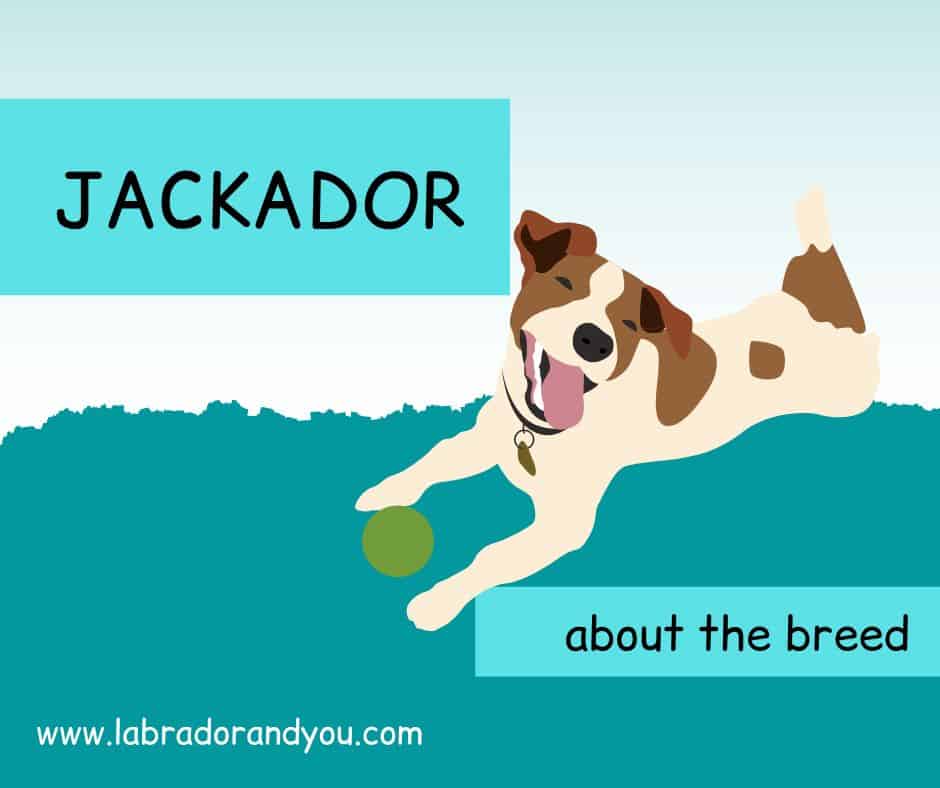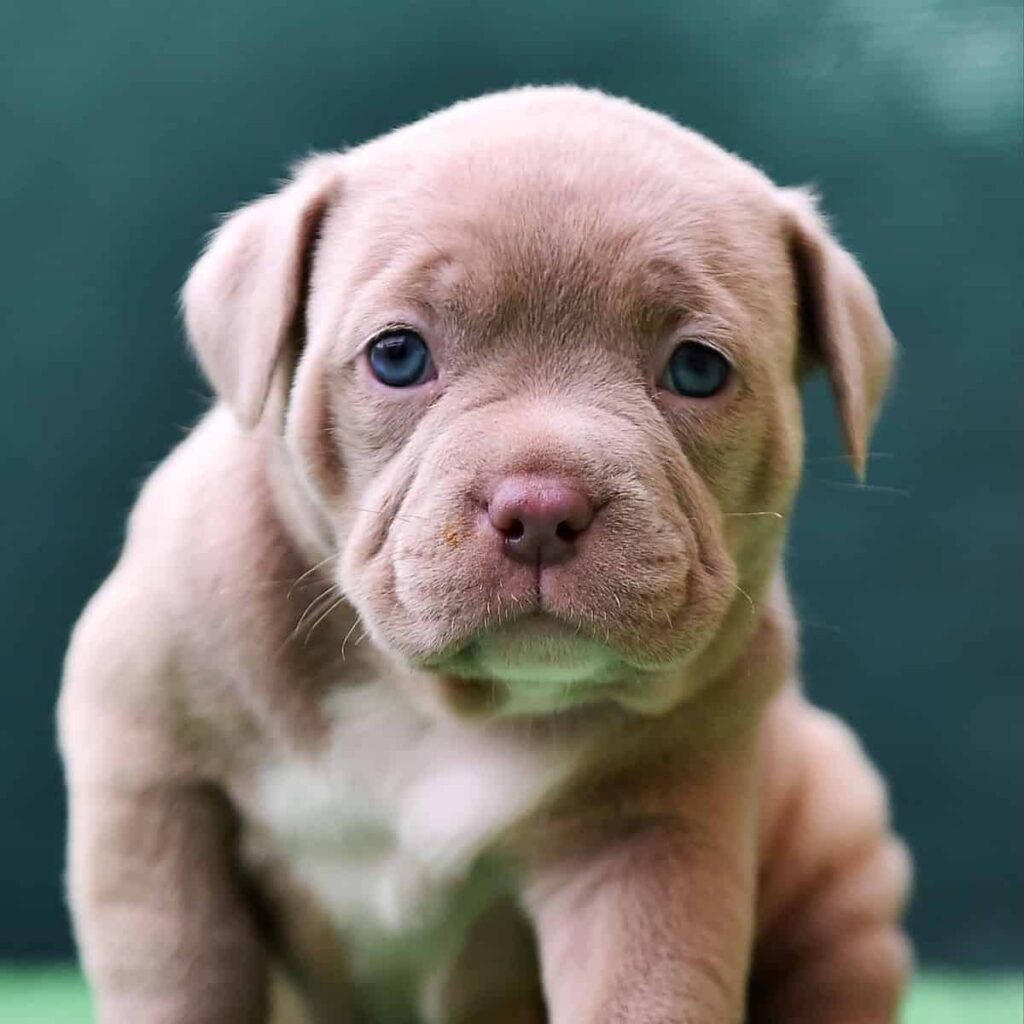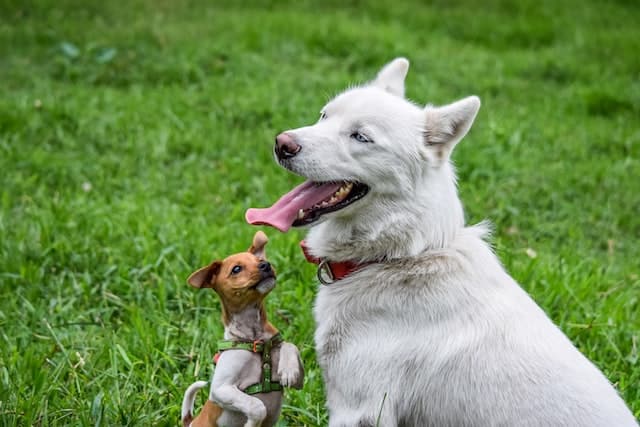The Goldendoodle Lab mix results from crossing a Labrador Retriever with a Goldendoodle. These designer dogs exhibit low shedding courtesy of the Poodle genetics, with only 10-25% of Goldadors shedding minimally. Their hypoallergenic coats also produce less dander.
This crossbreed stands 21-24 inches tall, weighing 50-80 pounds when fully grown. Goldadors have a life expectancy of 10-14 years. Their high trainability and moderate exercise needs make them well-suited for first-time owners. With proper socialization, Goldadors make friendly and obedient family companions.

What Is A Lab And Goldendoodle Mix?
A Lab and Goldendoodle mix, also known as the Double Doodle, is a designer dog breed resulting from crossing Labrador Retrievers with a Goldendoodle – a cross between a Golden Retriever and a Poodle.
The appearance and characteristics of Double Doodles can vary greatly due to their diverse ancestry, but generally, they are medium to large-sized dogs with gentle expressions. These mixed breeds often inherit the non-shedding coats from the Poodle side of their lineage or may have low-shedding coats like those seen in Labradors or Golden Retrievers.
Double Doodles make excellent family pets due to their friendly nature and adaptability to different environments. With proper socialization and training from an early age., these intelligent breeds can excel in various roles such as therapy or service dogs.
History Of The Parent Breeds
The Labrador Retriever and Golden Retriever originated in the 1800s and were bred as working gundogs before becoming popular family-friendly pets. Let’s discover how these breeds created the beloved Lab and Goldendoodle mix.
Labrador Retrievers: 2nd Most Popular Breeds
The good natured Labrador Retriever, often called the “Lab,” is an incredibly popular and versatile breed from Newfoundland. Bred initially as working gundogs, these intelligent and friendly canines quickly became sought-after pets due to their loyal and loving nature.
Labs are known for their waterproof double coats in three primary colors: black, chocolate, and yellow. They also have a strong work ethic that makes them suitable candidates for search-and-rescue operations or providing assistance to individuals with disabilities.
While they may share some common ancestry with the standard Poodle – another hunting dog breed – it’s important to note that Labs do shed more profusely than their curly-haired counterparts.

Goldendoodle Popular Dog Breeds
Goldendoodles, a designer breed created by crossing Golden Retrievers with Poodles, have gained popularity due to their charming looks and low-shedding coats. These delightful canines possess the friendly disposition of Golden Retrievers combined with Poodles’ intelligence and hypoallergenic qualities.
The Goldendoodle’s diverse coat colors include amber, brown, black, red, gray, white, cream, auburn, merle, blonde, gold, and yellow. Their coats can range from shaggy to curly, depending on their parentage.
In addition to being adorable companions that cater well to families with dog allergies due to their low allergen coats (thanks in part to their Poodle heritage), these versatile dogs also excel in activities such as obedience training and various dog sports.
The Goldendoodle is an intelligent and affectionate hybrid adored by many for its looks and personality traits, making it suitable for loving homes everywhere.
Appearance Of The Lab And Goldendoodle Mix
Lab and Goldendoodle mixes can vary in size depending on the parent’s breed, with most weighing between 40-75lbs and standing around 20-24 inches tall at the shoulder.
Standard Size
Lab and Goldendoodle mixes can vary in size depending on the parent breeds and their percentages in the mix. Generally, a standard Labradoodle parent is around 21-24 inches tall, while a Goldendoodle can be between 20 to 24 inches tall.
When choosing the right-sized lab and Goldendoodle mix for your home, it’s crucial to consider lifestyle factors such as living space and activity level. With proper exercise and training, larger dogs can do well, even in smaller homes or apartments.
However, if you live in a limited space or don’t have much time for outdoor activities with your dog daily, opting for a smaller-sized Lab or Goldendoodle mix might be best.
Coat
The coat of a Lab and Goldendoodle mix can vary depending on whether they inherit more traits from their Labrador Retriever or Poodle parent. Some puppies may have a curly, non-shedding wiry coat, while others may have a straighter, short-haired coat like the Labrador Retriever.
If your Goldendoodle Lab mix inherits more genes from its poodle parent, it will likely shed less than its purebred Labrador Retriever counterpart. However, having a non-shedding coat does not guarantee hypoallergenicity, as some people are allergic to dog saliva or dander rather than just fur.

Temperament And Traits
The Lab and Goldendoodle mix is an intelligent, energetic, and friendly dog breed. These dogs are loyal to their families and get along well with children, making them perfect family pets. They strongly desire to please their owners and are easy to train if you use positive reinforcement techniques.
One of the most notable traits of the Lab and Goldendoodle mix is their love for water. This trait comes from both parent breeds – Labrador Retriever and Golden Retriever – originally bred for hunting purposes involving water retrieval. Therefore, it’s unsurprising that these mixed-breed dogs enjoy swimming and playing in puddles or lakes.
Despite being affectionate towards strangers due to its Poodle heritage traits which make it wary of unfamiliar outsiders, early socialization is vital so they can develop confident reactions towards new situations, other animals, or human beings no matter where they go.
Training And Exercise
Training and exercise are crucial for the well-being of Lab and Goldendoodle mix dogs. These intelligent dog breed requires daily mental and physical stimulation to prevent boredom and destructive behavior.
Goldendoodle Labs excel in various dog sports, including agility, flyball, or even dock diving. Their high energy levels make them excellent running buddies or hiking companions for active families.
Regular exercise is essential for these energetic breeds as it helps maintain their overall health. Daily walks of at least 30-60 minutes are ideal for keeping them physically and mentally healthy.
By introducing your furry friend to lots of exercise throughout its life cycle, you’ll help ensure that he remains fit, happy, and healthy – an example is this breed’s love for water-based activities such as swimming!
Health And Care of Goldendoodle black lab mix puppies
Goldendoodle Lab mix puppies are generally healthy but can still be prone to certain health issues such as hip and elbow dysplasia, retinal atrophy eye issues, exercise-induced collapse, obesity, allergies, ear infections, thyroid disease, and cancer.
Common Health Issues
Lab and Goldendoodle mixes are susceptible to several health issues, including:
- Hip dysplasia: A genetic condition that causes the hip joint to develop abnormally and can lead to arthritis and lameness in severe cases.
- Elbow dysplasia: A hereditary condition that affects the elbow joint and can cause pain and difficulty moving.
- Heart disease: Labradors and Goldendoodles are prone to various forms of heart disease such as dilated cardiomyopathy, which can reduce their lifespan.
- Exercise-induced collapse (EIC): A genetic condition that can cause Labradors to collapse while exercising or playing.
- Obesity: Overfeeding or lack of exercise can lead to obesity in Lab and Goldendoodle mix dogs, increasing the risk of other health problems like diabetes, heart disease, and joint issues.
- Allergies: Both breeds are prone to skin allergies, food allergies, and environmental allergies that can cause itching, rashes, ear infections, and hair loss.
- Ear infections: Floppy ears make Labradors and Goldendoodles more prone to ear infections caused by bacteria, yeast, or mites.
- Thyroid disease: Hypothyroidism is a common endocrine disorder in dogs where the thyroid gland doesn’t produce enough thyroid hormone leading to weight gain, lethargy, and skin problems, among others
- Cancer: Like many dog breeds, both parent breeds have an increased risk of developing cancer throughout their lifetimes.
Owners should take proactive steps like scheduling annual veterinary check-ups for their pets, opting for regular exercises, providing regular grooming, feeding healthy diets, and early diagnosis through genetic testing.
A healthy pet insurance policy from companies like HealthyPaws Pet Insurance will safeguard your pet against any unexpected illnesses or accidents, saving you thousands on veterinary bills over your pet’s lifetime.
Life Expectancy
The Lab and Goldendoodle mix has an average lifespan of 10.5-15 years, similar to their parent breeds. Labs have a lifespan of about 12 years, while Poodles can live up to 15 years or longer.
On the other hand, Golden Retrievers have a lifespan of around 10-12 years. Lab and Goldendoodle mix owners must prioritize their dog’s health by feeding them a nutritious diet, providing regular exercise, and taking them for routine check-ups with the vet.

Grooming Requirements
Proper grooming is essential to maintain the health and appearance of a Lab and Goldendoodle mix. The type of coat they have will determine their grooming needs. Those with straight, shedding coats require regular brushing to prevent matting and reduce shedding, while those with curly, non-shedding coats may need daily brushing to prevent tangles.
Bathing should be done as needed but not too frequently as it can dry out their skin.
Professional grooming services can help keep your dog’s coat in top condition and ensure that they are properly groomed around sensitive areas like the ears, eyes, and paws. Even though some Lab and Goldendoodles are considered hypoallergenic due to their Poodle genetics, this does not mean they don’t shed or produce allergens completely.
Regular grooming practices, including toothbrushing, can significantly reduce allergy-related issues caused by pets, such as saliva or pet dander hidden within fur.
FAQ
Do Lab And Goldendoodle Mixes Make Good Family Pets?
Yes, Lab and Goldendoodle mixes generally make excellent family pets. They are affectionate, loyal, highly intelligent, and get along well with children and other pets when properly socialized. Their moderate energy levels and playful attitudes make them fun companions
Is A Lab And Goldendoodle Mix Hypoallergenic?
Lab and Goldendoodle mixes are often marketed as hypoallergenic dogs. While they have a low-shedding coat, it’s important to note that this does not guarantee that they are completely hypoallergenic.
what is a Goldendoodle and lab mix called?
Breeding a Labrador with a Goldendoodle produces an adorable crossbreed known as the Goldendoodle Lab mix. This designer dog can inherit traits from its parent breeds, including intelligence, loyalty, and energy levels.
Finding A Lab And Goldendoodle Mix Puppy
If you’re looking to buy a Lab and Goldendoodle mix puppy, finding a reputable breeder who prioritizes the dog’s health and well-being is essential.
Research online or ask friends for recommendations on breeders specializing in this crossbreed. When visiting the breeder, pay attention to the conditions of their facilities- they should be clean, spacious, and have enough space for puppies’ socialization.
Remember that high demand for designer dogs has increased puppy farms, where many breeders prioritize quantity over quality. These breeders usually produce pups at a lower price point but not without compromising quality standards, both physically and mentally. When purchasing any new pet, especially crossbreeds such as Labradoodles or Goldendoodles, it’s critical to consider factors such as
- size variation (past generations can influence adult size),
- grooming needs (curly coats don’t shed but need frequent brushing),
- activity requirements (many love water activities like retrieving toys),
- temperament/traits (high energy levels require plenty of exercises)
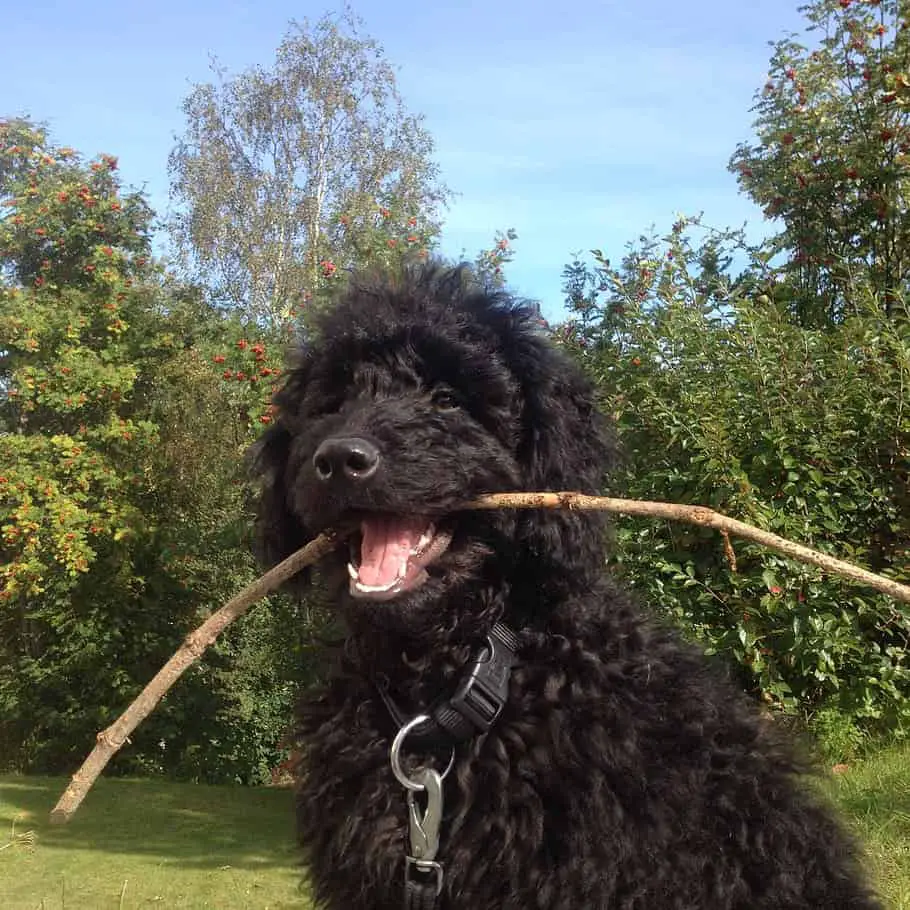
Lab And Goldendoodle Mix Vs Labradoodle VS Goldendoodle
This section will compare the Lab and Goldendoodle Mix with other popular Doodle mixes. Look at the table below to see how they stack up against each other.
| Lab and Goldendoodle Mix | Labradoodle | Goldendoodle | Double Doodle |
|---|---|---|---|
| Combines genes of Labrador, Golden Retriever, and Poodle breeds | Labrador Retriever and Poodle mix | Golden Retriever and Poodle mix | Labradoodle and Goldendoodle mix |
| Can be trained as gundogs, therapy dogs, or for dog sports | Originally bred for guide dogs and assistance roles | Commonly used as therapy and service dogs | Known for their intelligence and trainability |
| Possibly hypoallergenic, depending on coat type | Tends to be hypoallergenic due to Poodle genes | Typically hypoallergenic coat, with less shedding | Usually hypoallergenic and low-shedding |
| Socialization is important for confidence and calmness | Early socialization helps ensure a well-behaved adult dog | Benefit from early socialization and training | Requires socialization with other dogs and humans |
| May need advanced obedience and mental stimulation | Respond well to training and mental challenges | Enjoys mental stimulation and training | Thrives with mental stimulation and training |
| Can have a straight, shedding coat or a longer, curly, non-shedding coat | Wide range of coat types, including curly, wavy, or straight | Low-shedding coat, ranging from wavy to curly | Low-shedding coat, typically wavy or curly |
| Requires moderate exercise and socializing | Moderate exercise with a focus on socializing and playtime | Requires daily exercise and playtime | Moderate exercise with focus on socializing and playtime |
Author Profile
- Site Owner And Dog Lover
-
Aritra, the founder of Labradorandyou.com, is a lifelong dog lover whose passion ignited for Labradors for their loyalty and intelligence. With extensive research and personal experiences, Aritra has become a Labrador expert, offering a rich resource on the breed. Labradorandyou.com provides reliable, timely, and evidence-based information, including Labrador-specific product reviews, training techniques, and care tips.
Labradorandyou.com was born out of Aritra's passion and his desire to share his profound knowledge about the breed. The site serves as a comprehensive resource, offering a wealth of up-to-date information for Labrador owners and enthusiasts alike
Also by the author
-
 Lab-TypesNovember 17, 2023Old Dog Seizures: Causes, Symptoms, and Treatment Options
Lab-TypesNovember 17, 2023Old Dog Seizures: Causes, Symptoms, and Treatment Options
-
 Lab-TypesNovember 17, 2023Why Is My Dogs Poop Yellow? 8 Reasons & Solutions
Lab-TypesNovember 17, 2023Why Is My Dogs Poop Yellow? 8 Reasons & Solutions
-
 ReviewsNovember 17, 2023The Only Hill’s Science Diet Review You Need To Read
ReviewsNovember 17, 2023The Only Hill’s Science Diet Review You Need To Read
-
 Lab-TypesNovember 17, 2023How To Adopt An Emotional Support Dog?
Lab-TypesNovember 17, 2023How To Adopt An Emotional Support Dog?
